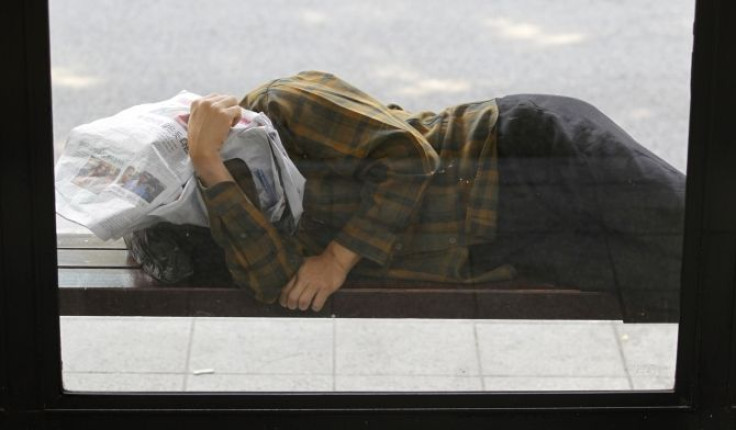As Florida's Tuberculosis Epidemic Continues, State Denies Cover-Up

Florida is in the midst of its worst tuberculosis epidemic since the 1990s – and earlier this month, shuttered the doors to its last remaining hospital dedicated to fighting the disease.
Ninety-nine people in Jacksonville, Florida have been diagnosed with tuberculosis so far, the majority of whom are homeless. Though the number is small considering that 8.8 million people worldwide were diagnosed with tuberculosis in 2010 alone, it is still concerning and raises significant questions about public health, Florida’s government, and priorities during an economic recession.
In 2008, a homeless man, diagnosed with schizophrenia, was plagued with a cough. He visited different facilities over the course of five months seeking a remedy. On the fourth visit, he was diagnosed with tuberculosis by physicians who had likely not seen an American case in years. However, treatment for tuberculosis takes months before you are no longer contagious but he stopped taking the pills before that time period. He was eventually locked into the state’s TB hospital.
By then, he’d spread the infection. A CDC investigation found TB infections in 88 percent of his contacts at the mental health facility. A normal rate of transmission is 20 to 30 percent. The CDC could not track all the cases, so the spread continued unabated. When Jacksonville called again, CDC found 99 cases dating from 2004.
In the meantime, Florida, plagued with budget woes, closed the doors to the tuberculosis hospital on July 2, sending people who had been diagnosed with the disease back into the community or to stay in motels. Republican governor Rick Scott said that the facility had outlived its usefulness. Lawmakers involved said that they had not been aware of the TB outbreak in Jacksonville.
The state has faced allegations of a cover-up, but officials say that is simply untrue. The Florida Department of Health said local authorities have been working to contain the outbreak, and there was no need to publicize the disease. They said that Florida TB cases have declined steadily from 1,764 cases to 753 between 1994 and 2012, and that the general population was not at risk because the risk of receiving the infection from someone on the street is low.
But the CDC’s investigation found that, of the 99 people infected, 21 people had no history of homelessness, jail time, or drug use. Furthermore, 29 people had not had any contact with the homeless population.
In Florida, 13 people have died from the outbreak. The CDC reports that of the 3,000 people exposed to the infection in the area's homeless shelters, mental health clinics, and prisons, only 253 people have been traced and tested.



























